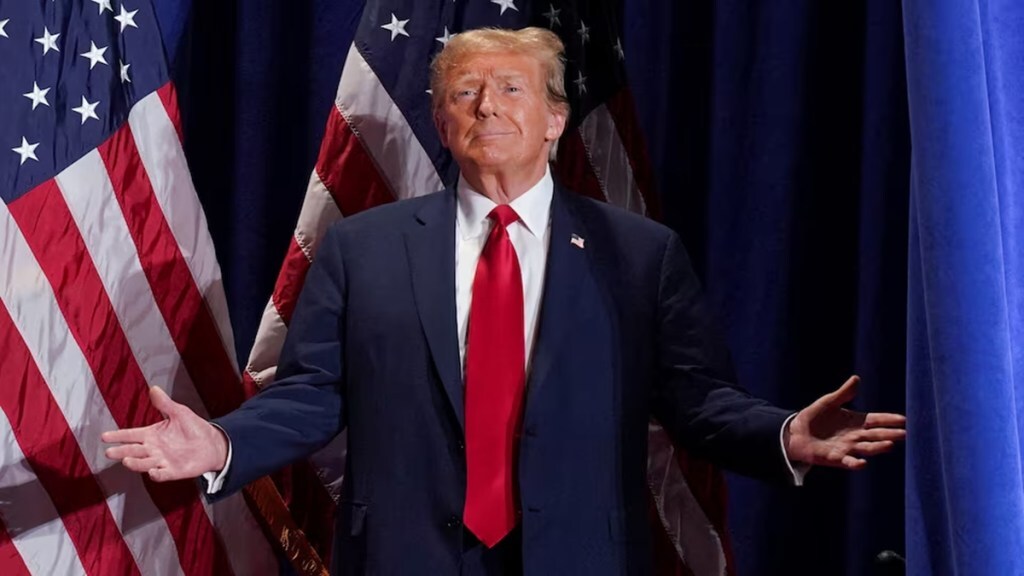Donald Trump reduced the corporate tax rate from 28% to 21% during his previous presidency and intends to further reduce it to 15% if elected again this year. Now, Trump proposes lowering the corporate tax rate to 15%, potentially cutting the US corporate tax rate by nearly half.
In a wide-ranging interview on business and the global economy on Bloomberg Businessweek, Trump says that, if he wins, he’ll allow Jerome Powell to serve out his term as chair of the Federal Reserve, which runs through May 2026. Also, Trump wants to bring the corporate tax rate to as low as 15% and he will consider Jamie Dimon, chairman and chief executive officer of JPMorgan Chase & Co., to serve as secretary of the Department of the Treasury.
Trump’s victory could boost stocks, but bonds’ outlook is skewed due to potential corporate tax cuts exacerbated by the escalating federal budget deficit.
U.S. stocks, under Biden, are trading at historic highs, inflation has decreased, recession appears to be averted, and consumer sentiment is notably positive. US Fed amidst this is getting ready to start cutting rates.
According to an article by ITEP, a non-partisan tax policy organization, following the implementation of the tax changes signed into law in 2017 by President Trump, the vast majority of the nation’s largest corporations saw substantial tax reductions. The 296 companies in the Fortune 500 and S&P 500 that were consistently profitable from 2013 to 2021, collectively saw the share of their profits that they paid in tax drop from 22.0 to 12.8 percent.
Center for American Progress Action (CAPAF) in an article states that Trump’s plan to slash the corporate tax rate would give the largest corporations a tax cut exceeding federal K-12 education spending.
The Joint Committee on Taxation and U.S. Treasury estimate that reducing the corporate tax rate from 21% to 15% would cost approximately $1 trillion over 10 years.
New analysis by CAPAF provides rough estimates of who benefits and shows that Trump’s plan to cut the corporate tax rate down to 15 percent would:
Give the largest 100 U.S. companies (the Fortune 100) a total estimated annual tax cut of $48 billion. They reported $1.1 trillion in profits in their last annual report.
Give 10 of the largest U.S. companies alone, including Meta, Comcast, and JPMorgan Chase, a total estimated annual tax cut of $23 billion. They reported more than $520 billion in profits.
Give the five largest U.S. oil companies—Exxon Mobil, Chevron, Marathon Petroleum/ConocoPhillips, Phillips 66, and Valero Energy—an annual total estimated tax cut of $2.5 billion. They reported more than $90 billion in profits.
Give the five largest drug makers—Johnson & Johnson, Merck, Pfizer, AbbVie, and Bristol-Meyers Squibb—an annual total estimated tax cut of $3.1 billion. They reported over $50 billion in profits.
Give five of the largest Wall Street banks—JPMorgan Chase, Bank of America, Citigroup, Wells Fargo, and Goldman Sachs—an annual total estimated tax cut of $4.1 billion. They reported nearly $113 billion in profits.
Give five of the largest grocery companies—Kroger, Costco, Albertsons, Target, and Walmart—an annual total estimated tax cut of nearly $1.7 billion. They reported over $29 billion in profits.

